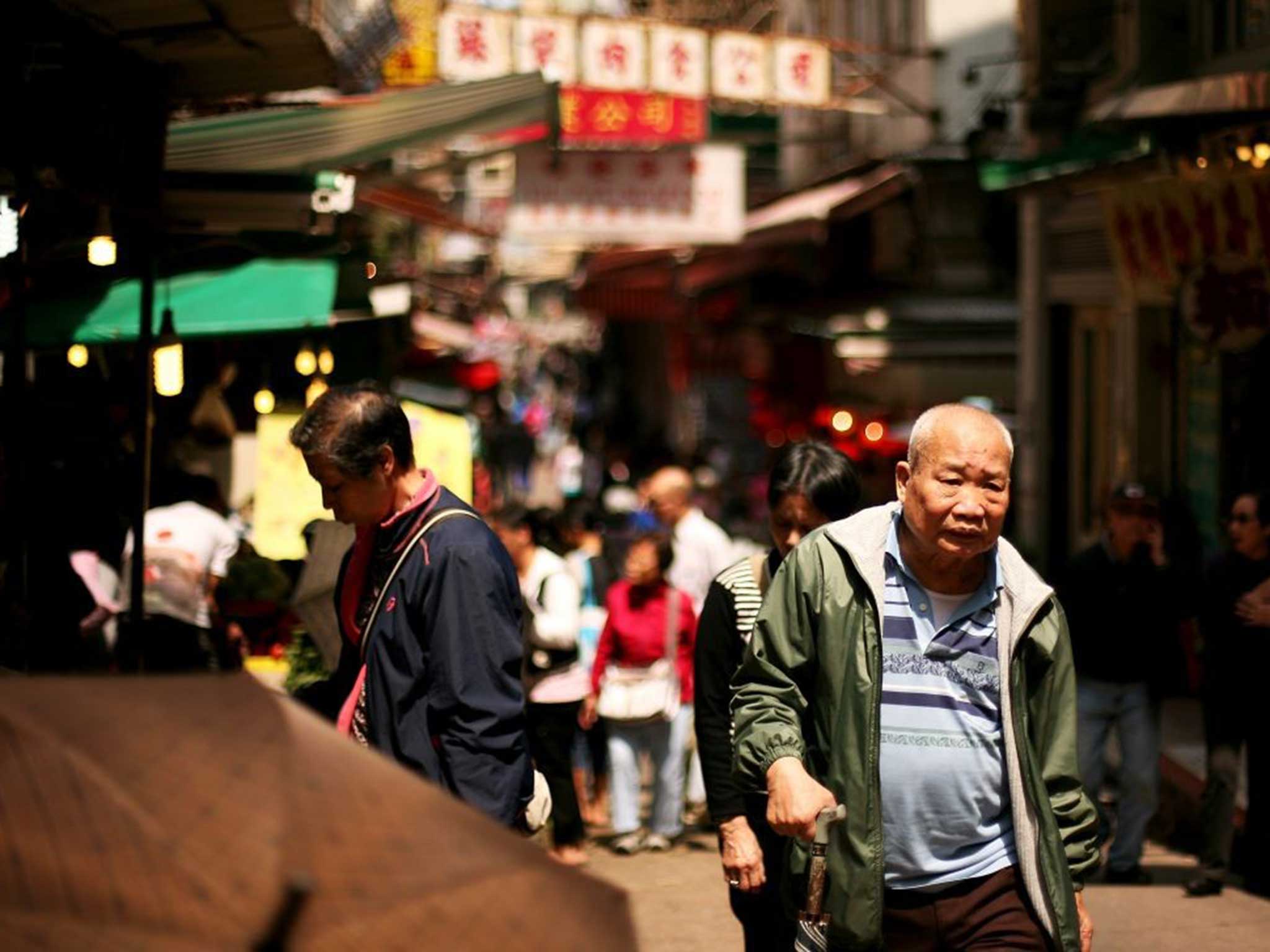China takes a hard line over foreign interference in the direction of Hong Kong's politics
Parliament is expected to limit elections for the leadership of the former British colony to pro-Beijing candidates only

China has warned against any foreign interference ahead of a crucial ruling on Hong Kong's political future today, saying Beijing will not tolerate the use of the city as a "bridgehead to subvert and infiltrate the mainland".
Today's meeting of the Chinese parliament is expected to limit 2017 elections for Hong Kong's leader to a handful of pro-Beijing candidates, a move likely to escalate plans by pro-democracy activists to blockade the city's central business district.
According to Chinese state media, an unidentified spokesman from the Chinese foreign ministry's Department of Hong Kong, Macau and Taiwan Affairs said China would promptly "make solemn representations" to any "external force" that interfered in Hong Kong's internal affairs.
Hong Kong is a special administrative region (SAR) of China, administered by what is known as the Basic Law. In an interview with the state news agency Xinhua, the unidentified spokesman said "some people" ignored the long-term interests of Hong Kong "to collude with external forces in an attempt to interfere with the SAR government administration".
This was done "not only to undermine the stability and development of Hong Kong but also to attempt to use Hong Kong as a bridgehead to subvert and infiltrate the mainland", the spokesman said.
"This will absolutely not be tolerated," he added.
The spokesman did not identify any outside countries. In 2013, the US envoy to Hong Kong, Clifford Hart, said that Washington would continue to back "genuine universal suffrage" there.
Such a strongly worded statement from the ministry signals growing anxiety among Chinese leaders about the outcome of Sunday's decision, which will be watched closely by diplomats and international human rights groups.
Barack Obama and China's President Xi Jinping will have an informal meeting in November. Tensions between the US and China are the highest they have been since Mr Xi assumed office last year. Both sides are at odds over China's increasing assertiveness in Asia and issues such as cyberspying. Leaders of the Asia-Pacific Economic Co-operation group will meet in Beijing on 10 and 11 November. Mr Obama plans to stay in China for a bilateral meeting with Mr Xi.
On Friday, Robert Wang, the senior US State Department official responsible for the summit, said details of the meeting were still under discussion. But the US side believed the informality of their summit at a desert getaway in Sunnylands, California, last June had been "an effective way of doing things".
The territorial dispute between China and countries including Japan over the South China Sea is another thorny issue, with the US supporting Japan and the Philippines. The latter country has accused China of acting "like Hitler" about the disagreement.
However, the two presidents have been careful to demonstrate friendship between their nations, with Mr Xi playing host to Michelle Obama and her daughters in China in March. As well as playing ping pong and visiting the Great Wall, Mrs Obama told Chinese students that free expression should be a "universal right", in a dig at China's tough stance on dissent and free speech.
Today's expected decision to limit the number of candidates for the 2017 Hong Kong elections could trigger a showdown with pro-democracy demonstrators who are planning an Occupy Central campaign. The Hong Kong government will deploy 5,000 police for the expected protest this evening, Hong Kong's official media RTHK said.
Hong Kong returned to Chinese rule in 1997 and there have been fierce debates in the past year over how its next leader is chosen in 2017 – by universal suffrage, as the democrats would like, or from a list of pro-Beijing candidates.
It returned under a principle of "one country, two systems", allowing it broad autonomy and far more freedom of speech, assembly and religion than exists on the mainland. However, China has made it plain that Beijing's sovereignty cannot be questioned. Beijing has ratcheted up its control despite promises to grant the city a high degree of autonomy and eventual universal suffrage, alarming many in Hong Kong and international observers.
In neighbouring Macau, another Chinese SAR, chief executive Fernando Chui is widely expected to be "re-elected" on Sunday after his pro-China government stifled an unofficial referendum on democracy.
Join our commenting forum
Join thought-provoking conversations, follow other Independent readers and see their replies
Comments
Bookmark popover
Removed from bookmarks